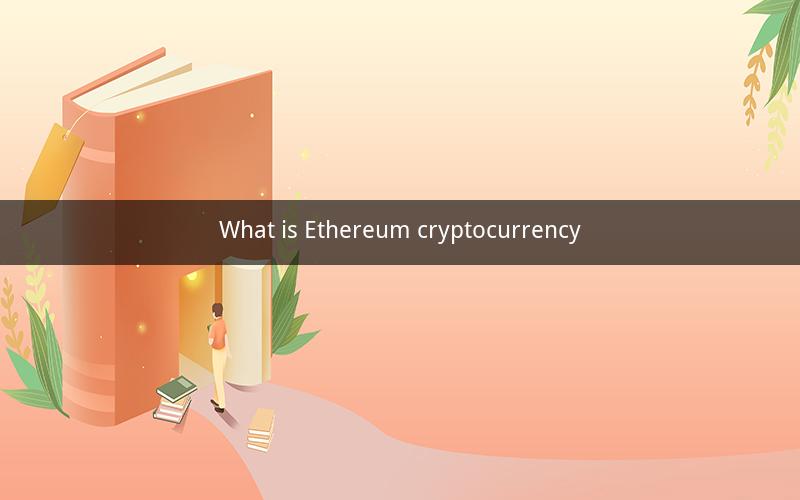
Ethereum Cryptocurrency: A Comprehensive Guide
Table of Contents
1. Introduction to Ethereum
2. The Ethereum Blockchain
3. Smart Contracts and DApps
4. Ethereum Virtual Machine (EVM)
5. Ethereum's native currency: Ether (ETH)
6. Ethereum's Development and Roadmap
7. Ethereum 2.0: The Future of Ethereum
8. Ethereum's Security and Consensus Mechanism
9. Ethereum's Impact on the Financial Industry
10. Conclusion
1. Introduction to Ethereum
Ethereum is a decentralized platform that runs smart contracts: applications that run exactly as programmed without any possibility of downtime, fraud, or third-party interference. It was proposed in 2013 by Vitalik Buterin, a Russian-Canadian programmer, and launched in 2015. Unlike Bitcoin, which is primarily a digital currency, Ethereum is a blockchain platform that enables developers to build decentralized applications (DApps) and smart contracts.
2. The Ethereum Blockchain
The Ethereum blockchain is a decentralized ledger that records transactions across many computers so that the record cannot be altered retroactively without the alteration of all subsequent blocks and the consensus of the network. It uses a Proof of Work (PoW) consensus mechanism, which requires miners to solve complex mathematical problems to validate transactions and add them to the blockchain.
3. Smart Contracts and DApps
Smart contracts are self-executing contracts with the terms of the agreement directly written into lines of code. They run on the Ethereum network and are immutable once deployed. DApps are applications that run on the Ethereum platform, utilizing the blockchain's decentralized nature to ensure transparency, security, and trust.
4. Ethereum Virtual Machine (EVM)
The Ethereum Virtual Machine (EVM) is the runtime environment for smart contracts on the Ethereum platform. It executes the code of smart contracts and ensures that they are executed in a consistent and predictable manner. The EVM is a stack-based virtual machine that allows for the execution of arbitrary code.
5. Ethereum's native currency: Ether (ETH)
Ether is the native cryptocurrency of the Ethereum network. It is used to pay for transaction fees on the network, to compensate miners for their work, and to incentivize network participants to secure the network. Ether can be bought, sold, and traded on various cryptocurrency exchanges.
6. Ethereum's Development and Roadmap
Ethereum has a clear roadmap for future development, with several phases planned to improve scalability, reduce costs, and enhance security. The Ethereum Foundation, a non-profit organization, coordinates the development of the Ethereum network and its ecosystem.
7. Ethereum 2.0: The Future of Ethereum
Ethereum 2.0 is the next major upgrade to the Ethereum network. It aims to transition from the current Proof of Work (PoW) consensus mechanism to Proof of Stake (PoS), which is more energy-efficient and scalable. Ethereum 2.0 also introduces several new features, such as sharding, which will significantly increase the network's capacity to process transactions.
8. Ethereum's Security and Consensus Mechanism
Ethereum's security is a top priority, with a robust consensus mechanism that ensures the integrity of the network. The PoW consensus mechanism requires miners to solve complex mathematical puzzles, which makes it computationally expensive to attack the network. However, Ethereum 2.0 aims to address some of the security concerns associated with PoW, such as the environmental impact and centralization risks.
9. Ethereum's Impact on the Financial Industry
Ethereum has had a significant impact on the financial industry by enabling the creation of decentralized finance (DeFi) applications. DeFi is a financial ecosystem built on blockchain technology that allows users to access financial services without intermediaries. Ethereum has become the leading platform for DeFi applications, thanks to its smart contract capabilities and large developer community.
10. Conclusion
Ethereum is a groundbreaking blockchain platform that has revolutionized the way we think about decentralized applications and smart contracts. Its innovative features, such as the EVM and Ether, have made it a favorite among developers and investors alike. As Ethereum continues to evolve, its impact on the financial industry and beyond is expected to grow exponentially.
---
FAQs and Answers
1. What is the difference between Bitcoin and Ethereum?
- Bitcoin is primarily a digital currency, while Ethereum is a blockchain platform that enables the creation of decentralized applications and smart contracts.
2. How does Ethereum's Proof of Work (PoW) mechanism work?
- Ethereum's PoW mechanism requires miners to solve complex mathematical problems to validate transactions and add them to the blockchain, which ensures the security and integrity of the network.
3. What is a smart contract?
- A smart contract is a self-executing contract with the terms of the agreement directly written into lines of code, which runs on the Ethereum network.
4. What is DeFi?
- DeFi stands for decentralized finance, and it refers to financial services built on blockchain technology that allow users to access financial services without intermediaries.
5. What is the Ethereum Virtual Machine (EVM)?
- The EVM is the runtime environment for smart contracts on the Ethereum platform, allowing for the execution of arbitrary code in a consistent and predictable manner.
6. How can I buy Ether (ETH)?
- You can buy Ether on various cryptocurrency exchanges using fiat currency or other cryptocurrencies.
7. What is Ethereum 2.0?
- Ethereum 2.0 is the next major upgrade to the Ethereum network, which aims to transition from Proof of Work to Proof of Stake and introduce several new features to improve scalability and security.
8. Why is Ethereum considered more secure than traditional banking systems?
- Ethereum's decentralized nature and the use of blockchain technology make it more secure against fraud and manipulation compared to traditional banking systems.
9. Can Ethereum's smart contracts be modified after deployment?
- No, smart contracts on the Ethereum network are immutable once deployed, ensuring that the terms of the contract cannot be changed retroactively.
10. What is the future of Ethereum?
- The future of Ethereum is promising, with ongoing development efforts aimed at improving scalability, security, and user experience, as well as the potential for widespread adoption across various industries.